If you have travelled through northern Queensland, you have probably visited Karumba, one of the few accessible spots on the Gulf coast. If you are keen on fishing, you most likely have been there. I don’t fish, and I wasn’t sure what to expect of Karumba that would interest me. I must admit, I did think that the locals would spot me out of the crowd. My fear was they would recognise me as a non-fisherman and let me know I was not welcome. I received some advice from a colleague who said he understands the northern Australian lifestyle because he spent his youth in an isolated part of the Northern Territory on the Gulf. He said that I would stand out, not because I didn’t fish, but because I wear a shirt, shorts other than stubbies, and thongs instead of bare feet. He insisted I should blend in as a local. Despite his advice, I decided I would arrive in my typical travelling outfit – t-shirt, shorts other than stubbies, and thongs.
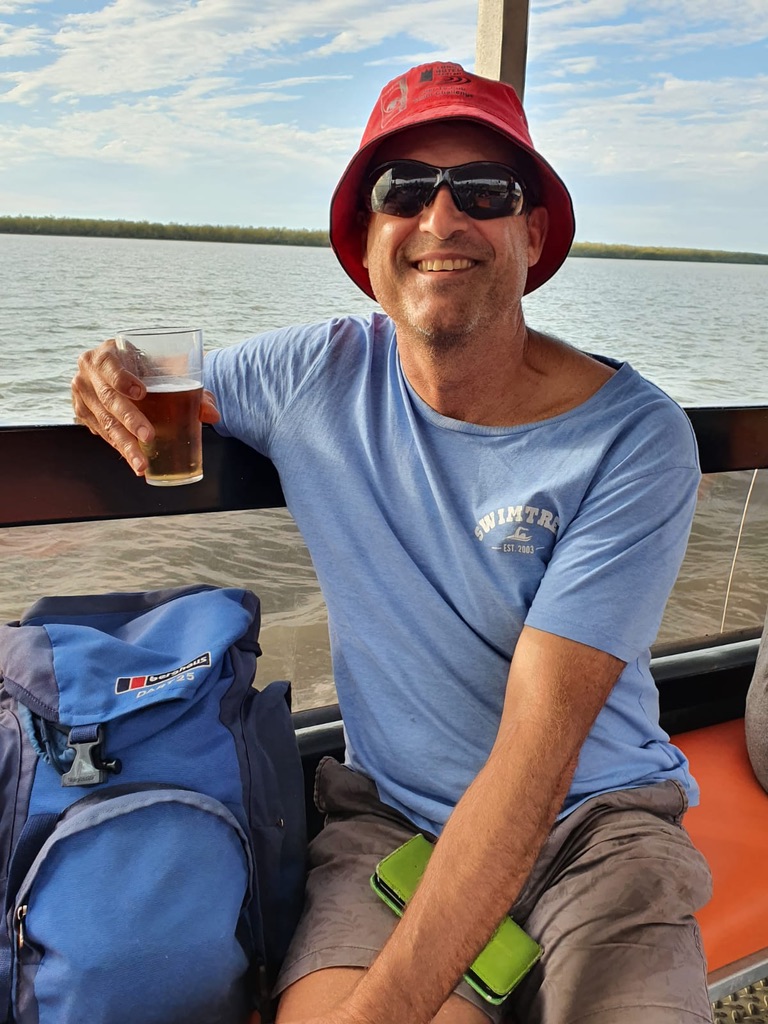
Karumba is a much different town to the one conjured in my mind from my colleague’s advice. For a start, people wear shirts, walk around in shorts other than stubbies and wear thongs or even shoes. There is now a bitumen road into town, and it is much more accessible to southerners and grey nomads with their caravans. It supports a mature holiday scene where holiday units and caravan parks dominate instead of dilapidated shacks and crocodile farms. There are numerous charter fishing trips, birdwatching adventures and sunset cruises offering wine and sparkling, similar to the ‘lah-de-dah’ cruises on the Noosa or Brisbane Rivers. There is even an excellent walking track through the mangrove flats between old Karumba and newer Karumba Point. And of course, beautiful sunsets.
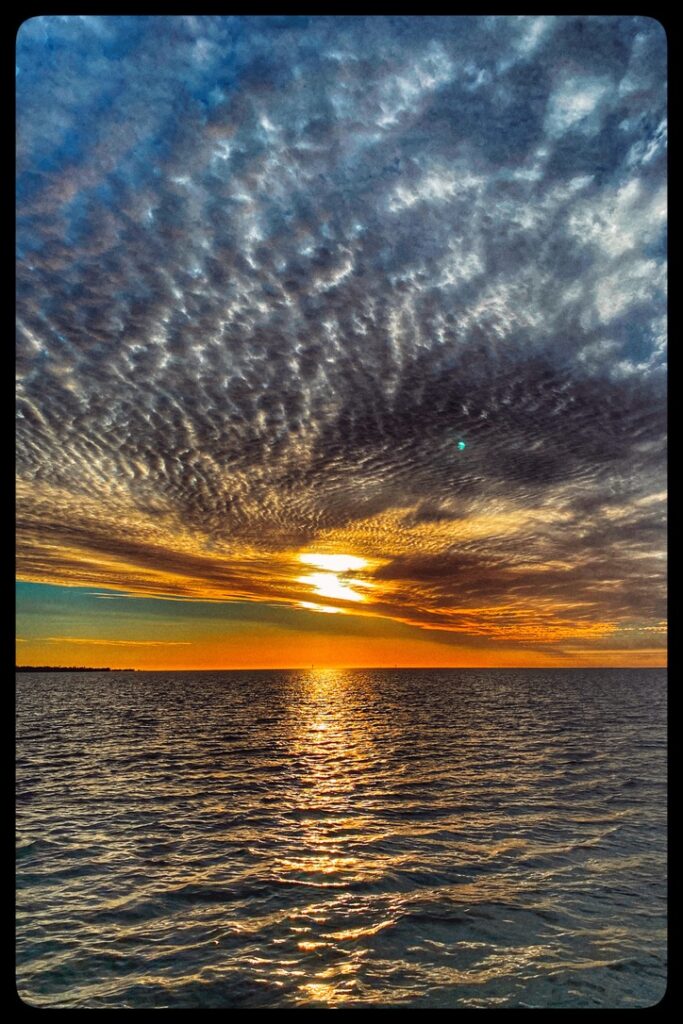
Karumba displays an air of gentrification, despite supporting enormous boat ramps. It has possibly the largest concentration of recreational boats in Australia, even though we arrived outside the primary fishing season. There are no apparent signs of the diehard fishermen who seek a lonely life away from everyone else, and follow local unwritten rules. I am sure they are still there, but maybe they have moved out to the fringes of the town, forced to find isolated patches off the beaten track away from the holiday units and grey nomads.
Karumba has an exciting history. It has played its part in WWII as the only defence post on the Gulf. It is also an important port for this part of Australia, exporting zinc pumped via a slurry pipe from Lawn Hill, as well as live export of cattle. Fishing trawlers that chase the banana prawns, only found in the Gulf, also base themselves at Karumba.
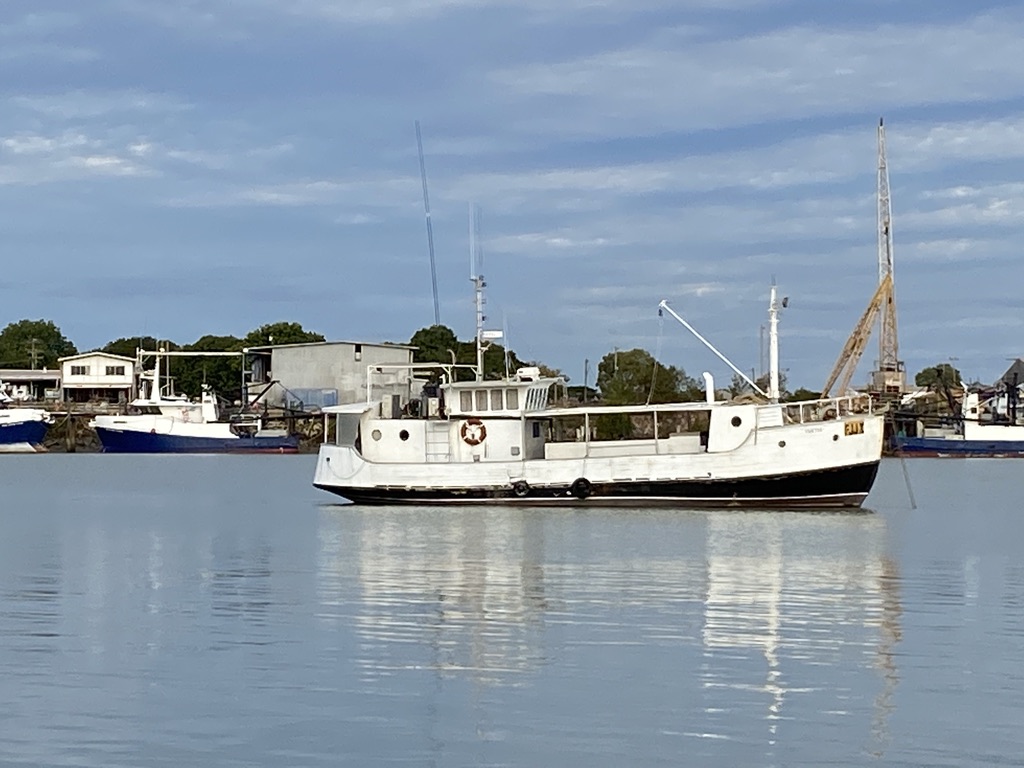
The main reason I wanted to share a story about Karumba was because of the relaxed Far North Queensland (FNQ) way of life. We were staying at the caravan park behind the service station at Karumba Point (aka Ronnies – one of the ex-crocodile farms). I arrived in town carrying a punctured car tyre for over 500 kilometres, and a slow leaking caravan tyre. The service station is the only tyre repair place at Karumba, so I was looking forward to repairing the tyres.
Unfortunately, on arrival, the caretaker advised us that the mechanic was away on holidays ‘for a few days’ and they didn’t know when he was returning. Given he is the registered RACQ on-call mechanic for the area, thankfully I didn’t need any roadside assistance on my way to Karumba.
Unexpectantly, however, the mechanic was back at work the next day, and I asked him if I could get my tyre problems fixed. “Sure, but give me an hour as I have some paperwork to catch up on,” he said. Right on the hour I jacked up the caravan and removed the leaking tyre. I also removed the flat spare from under the car and rolled both wheels up to the workshop. The mechanic asked “How long are you here for mate?” I replied, “I am leaving tomorrow, no rush”. Big mistake. Huge mistake. Here I was thinking that after dropping the tyres off at 10 am and with business very quiet – there were no cars to service – the tyres would get attended to before 3 pm.
We had already booked a sunset cruise on the Norman River that afternoon and had to be at the boat ramp at 3:30. I wanted to put the caravan tyre back on the van before leaving so I didn’t have to do it in the dark after our trip, as I didn’t want to sleep in a jacked-up van. An hour later, I went to pick up my repaired tyres. They were still sitting forlornly against the big shed’s sliding door untouched. Every subsequent hour I walked up to the workshop, and each time I witnessed the same scene – two lonely tyres just sitting there. No-one in the workshop. No sign of any work at all. Finally at 3 pm, with the tyres still sitting there untouched, I wheel them back and put them on the caravan and the car and decided to get them repaired at Normanton the next day.
This experience taught me that FNQ time is different to standard time elsewhere in Australia. It revolves around the tides and fishing. Some of you may not be aware that there is only one tidal change in the Gulf each day. If the weather, fishing conditions and the high tide all coincide with promising results, then work or business takes a back seat. Nothing gets in the way of catching a barra or queenfish.
Yes, Karumba may have joined the twenty-first century with its upmarket holiday units and river cruises, but fishing still takes priority and, just like me, if you are not there to fish and require a business transaction, be very careful when you reply to the question “How long are you for here mate?” It might also pay to understand the nuance of precisely what “catching up on paperwork” really means. It appears to be code for the tide is right and fish are biting. Old mate’s priority was fishing, not his mechanical business and the paperwork. He must have returned from his fews days off early because the fish weren’t biting, and knew his local fishing spot was the place to be instead. If I had known that, it certainly would have saved me the trouble of wheeling the tyres up to the workshop and checking on them every hour that day.
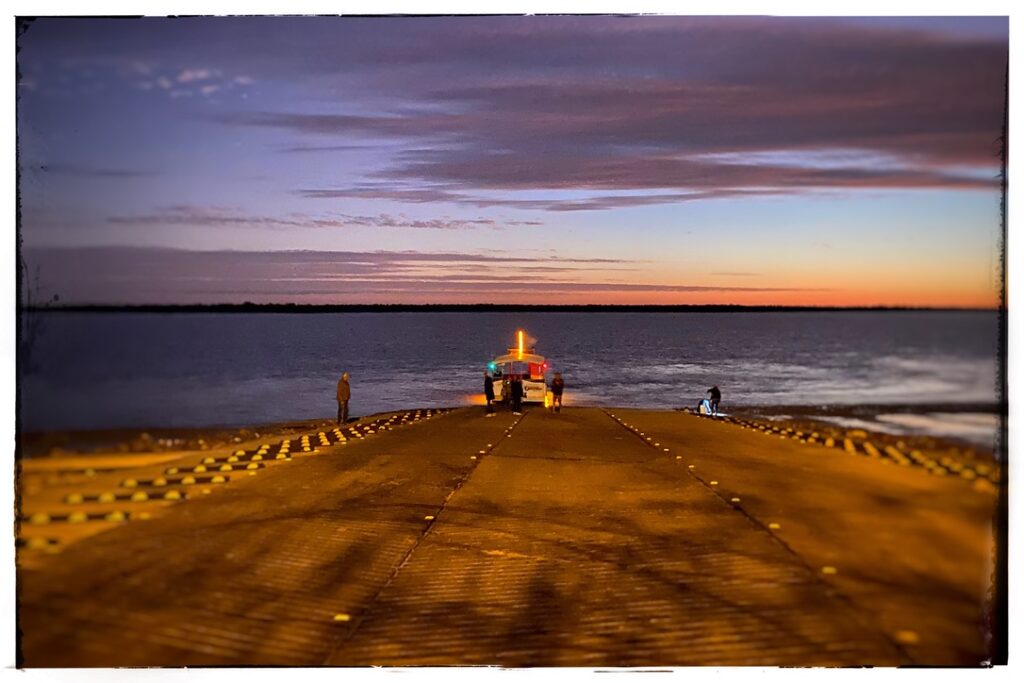
As for the well-intentioned advice from my colleague. Perhaps it is he who needs re-educating about life in FNQ. After all, he has been away from northern Australia for nearly 40 years. He now lives a city life sipping soy lattes, reading the New York Times and watching the ABC. He may have once paraded around shirtless, in stubbies and barefoot in his far-off youthful days on the Gulf. But I know today, he wouldn’t look out of place at Karumba, and I should encourage him to visit. Arriving in his top-of-the-range SUV wearing designer clothes and shoes, he could saunter into the hip café to sip a soy latte, read the New York Times, and listen to the ABC on his headphones without being out of place.
PS. We didn’t see the Morning Glory while we were at Karumba.
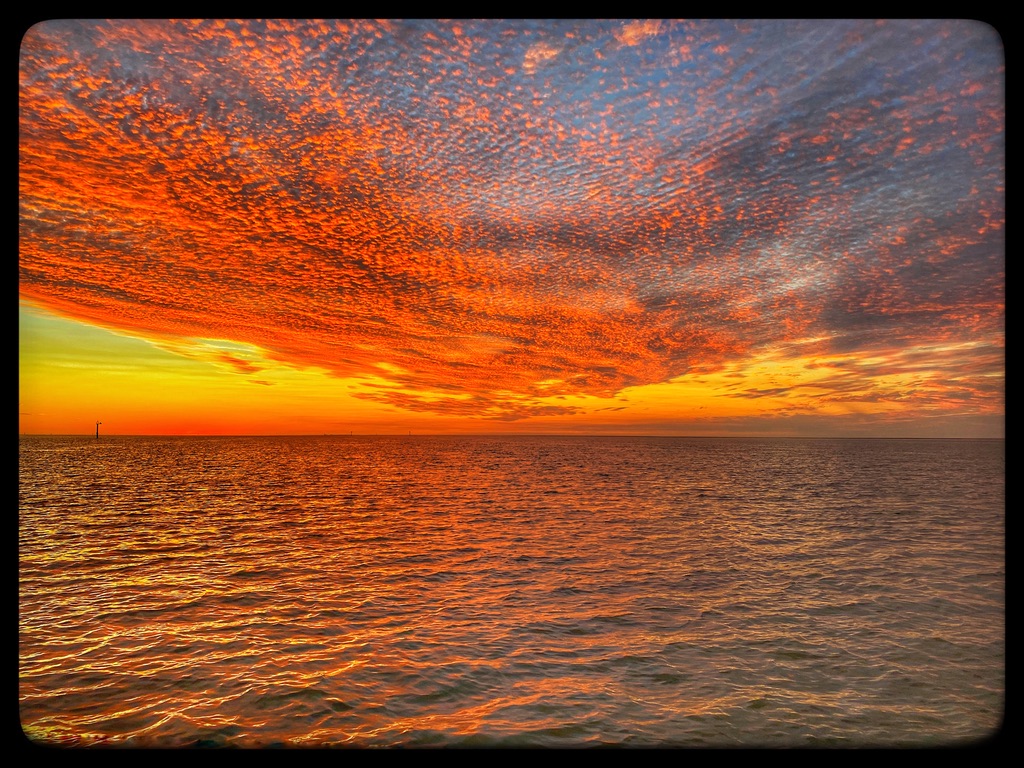
I do believe both tyres were beyond safe repair, the old comment”it’s just a spare” was used , for your safety and other road users I will not try and repair suspect tyres, as I tried to explain to you.
Ron, I think you have confused me with a different customer. My tyres were repaired at Normanton and they were not beyond safe repair. No-one looked at my tyres when I left them at the agreed place. Also, no-one had a conversation with me about the tyres and whether they were safe to repair.
I’m curious about why you travelled 50 k on a punctured tyre with no spare when you could’ve turned around and gone the 19 km back to Normanton where there are a multitude of service stations?
When you are travelling to remote areas, it really pays to do a little research.
Lyne, I travelled on the spare for 500 kilometres, without the puncture repaired because, after leaving Lawn Hill, I tried to get it fixed at Gregory Roadhouse where we left our caravan for two nights. Unfortunately, I couldn’t get it done there. I then tried at Burke and Will Roadhouse at the Three Ways. Again no luck. So my only option was to continue to Normanton/Karumba.
I chose Karumba to get the repairs done because the park we were staying at had a mechanic associated with it. I thought I could drive in set up and then get the repairs fixed.
In hindsight, when I got the puncture 30 kilometres after leaving Adele campground, I should have turned around and gone back to their workshop. However, the road was pretty bad on that stretch and I didn’t want to risk an additional puncture.
So as you can see, it wasn’t as simple as you think to get the puncture repaired, hence my story.